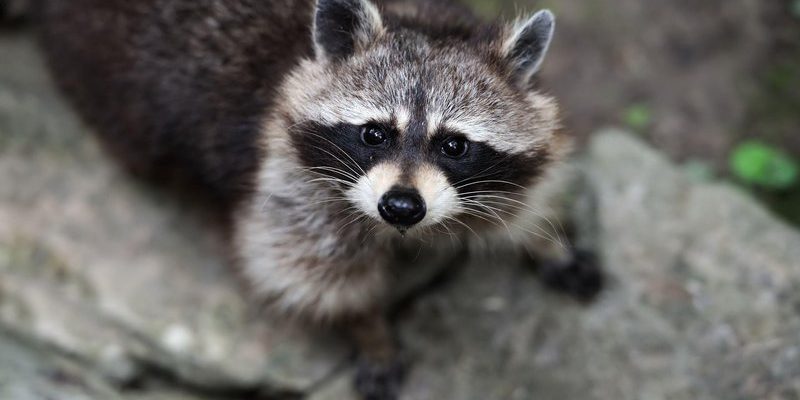![Comparing The Raccoon Vs. [Similar Species]](https://gudri.com/wp-content/uploads/2025/06/Comparing_The_Raccoon_Vs___Similar_Species__image_0.jpg)
Let’s dive in and explore how these two animals stack up against each other. We’ll look at everything from their physical appearances to their behaviors and roles in the ecosystem. By the end, you’ll have a clearer picture of what makes raccoons and opossums uniquely fascinating, and maybe you’ll even find yourself cheering for one over the other!
Physical Appearance
Raccoons are pretty easy to spot, thanks to their distinct looks. They usually have a grayish-brown fur coat, which is complemented by a fluffy tail adorned with black rings. Their most recognizable feature? Those striking black “mask” markings around their eyes. It’s almost as if they’re little bandits sneaking around! Adult raccoons can weigh anywhere from 10 to 20 pounds, making them relatively sturdy little guys.
On the other hand, opossums present a different picture altogether. These marsupials might not win any beauty contests with their rat-like tails and elongated snouts, but they come with their own unique traits. Opossums are usually smaller than raccoons, weighing between 4 to 15 pounds. Their fur is mostly gray, and they have a pair of sharp, pointy ears. Opossums also have a strategy for dealing with threats—playing dead! In their time of panic, they can collapse into a temporary state of shock, sometimes referred to as “playing possum.”
Habitat & Distribution
When it comes to habitat, both raccoons and opossums are adaptable creatures, but they have their preferences. Raccoons love areas close to water, such as forests, marshes, and urban neighborhoods. Their nimble paws make them great climbers, allowing them to explore trees and buildings in search of food. You might find them near ponds or streams, where they can wash their food—a quirky behavior raccoons are famous for.
Opossums, however, are a bit more flexible. They can thrive in a wide range of environments, from wooded areas to cities. Unlike raccoons, they prefer to nest in hollows or burrows instead of climbing. You might spot an opossum wandering your garden or rummaging through your compost pile late at night. Their ability to adapt to different environments is one reason they’re quite widespread across North America.
Diet & Feeding Habits
Diet-wise, both critters are omnivores, but they have different tastes. Raccoons are known for their adventurous appetites. They’ll munch on fruits, nuts, insects, and even small animals when the mood strikes. What’s interesting is they often “wash” their food before eating it, which is believed to be a way of cleaning off dirt or debris. This charming habit has cemented their image as little foodies who enjoy a good feast!
Opossums, meanwhile, have a less picky palate. They’re often seen as nature’s clean-up crew. With a knack for devouring pests, they love munching on insects, ticks, and even small rodents—helping keep the ecosystem in balance. If you have a garden, an opossum can be your unexpected ally by snacking on those pesky insects while you sleep.
Behavior & Social Structure
When it comes to behavior, raccoons are social creatures, often seen foraging in groups. They’re known for their intelligence and dexterity, using their paws almost like hands to manipulate objects. Have you ever seen a raccoon open a trash can? It’s a testament to their problem-solving skills! But they can also be quite territorial and will defend their space if needed.
Opossums, on the other hand, tend to be solitary animals. They don’t form packs like raccoons do. Instead, they’re more like the introverts of the animal kingdom. When faced with danger, their go-to move is to freeze and play dead. This strange but effective tactic often confuses predators, allowing the opossum to escape unharmed. So, while a raccoon might band together for support, an opossum goes solo, relying on evasion tactics instead.
Reproduction and Lifespan
In terms of reproduction, raccoons typically have larger litters than opossums. A female raccoon can have up to seven kits in a single litter, which she raises with the help of her maternal instincts. These kits often stay with their mother for several months, learning essential survival skills along the way. Raccoons usually live around 2 to 3 years in the wild, though some can reach up to 5 years or more with proper care.
Opossums have a different life cycle. They usually give birth to about 6 to 9 joeys at a time, but only a few may survive as they grow. Opossums are unique in that the young ones crawl into their mother’s pouch after birth, similar to kangaroos. They generally have a shorter lifespan, living about 1 to 2 years in the wild. Their short lives might seem sad, but they play a significant role during their time on Earth.
Role in the Ecosystem
Both raccoons and opossums hold important roles in their ecosystems. Raccoons are often considered *keystone species*, meaning their presence has a significant impact on their environment. By foraging for food, they help disperse seeds and control insect populations. Plus, their scavenging habits help clear away waste, making the environment cleaner.
Opossums also contribute to the ecosystem in their unique way. Their fondness for ticks helps control these pesky pests, which is especially beneficial for preventing the spread of Lyme disease. They’re like nature’s tick removal service! By eating ticks and other insects, opossums help keep our yards and forests healthier and more balanced.
So, who’s the real winner in this showdown between raccoons and opossums? Honestly, it’s tough to declare a victor since both creatures bring their own value to the table. Raccoons charm us with their playful antics and intelligence, while opossums impress us with their unique survival strategies and pest control prowess.
Next time you spot one of these nocturnal neighbors, take a moment to appreciate their roles in our ecosystems. They may look similar at first glance, but each one adds a unique touch to the wildlife tapestry around us. Whether it’s the crafty raccoon or the humble opossum, both deserve our respect and admiration.

